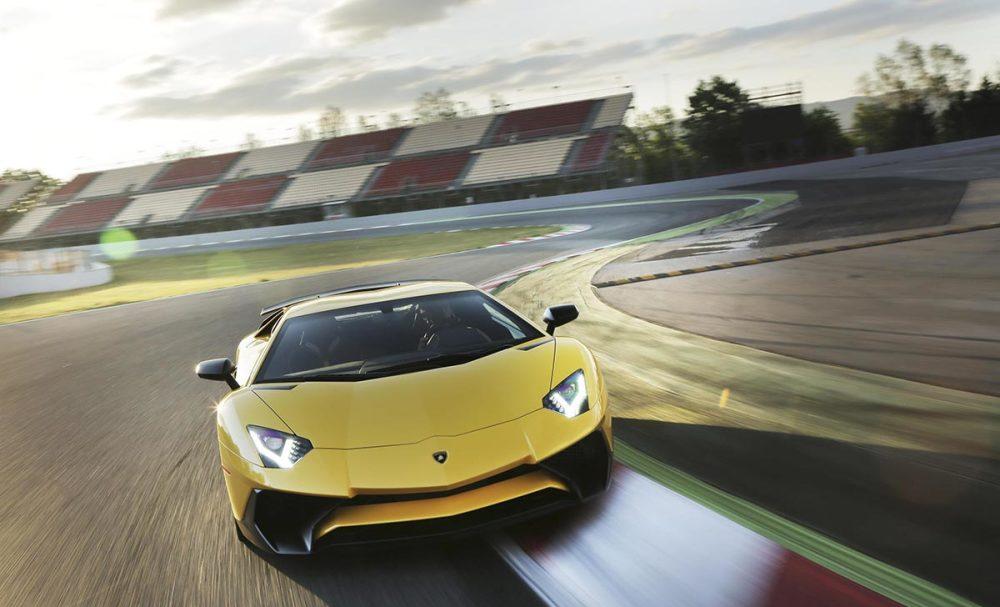Now, even supercar brands can't avoid electrification. But they will never be satisfied with the situation. So Lamborghini came up with its own strategy to slowly usher in the era of electrification.

Banning the sale of internal combustion engines in Europe after 2030 has become the consensus of most automakers. When we talk about reality, the times have decided to part ways with the internal combustion engine. In fact, for people who drive ordinary cars, the changes may not be as big as you think. Before experiencing an electric car, there is a preconceived notion that it will be strange, but after the experience, you will find that it is almost no different from the car we ride in today. Therefore, as long as the infrastructure and charging technology are solved, the promotion of pure electric vehicles is not difficult.
But for sports car enthusiasts, especially supercars, the situation is different. Supercars are always after more than just speed.
The sound of a supercar is the most intensely stimulating factor. The impression of engine sounds from V8 to V12 is everywhere. Whether it's parking lots, tunnels, or winding roads, it can burst out of its own charm. The engine sound of a supercar changes slightly with time and place, and this satisfaction is irreplaceable by anything.
As a result, most of the brands that make these cars are now in a very serious predicament. This is because the motor does not make a satisfactory sound as before. If you use a sound system to simulate engine sound waves, it is a lie and self-deception.
Recently, Lamborghini unveiled an electrification roadmap that is strategically aligned with its parent group, Volkswagen Group. They are also well aware that one day they will have to build electric vehicles and have announced that they will announce acceptable levels of electric vehicles as early as 2027 or 2028.
But he didn't say all Lamborghinis would be electric. Lamborghini CEO Stephan Winkelmann asked in a recent interview that "will all internal combustion engines be phased out in the next 10 years?" ”。 From a different perspective, it can be interpreted as the company will continue to build the internal combustion engine.
According to Lamborghini's plan, the plug-in hybrid of the internal combustion engine will be slightly longer for the time being until the release of the all-electric Lamborghini in 2027. At present, many brands of the Volkswagen Group have launched PHEV, and competing brands have begun to adopt PHEV methods, so it is not surprising that Lamborghini hybrids. But lamborghini, on the other hand, hopes that synthetic fuels that are close to carbon neutrality will be produced in large quantities. Hopefully it can be used as fuel for Lamborghini.
Audi and Porsche have also been working on synthetic fuels. Of course, the beginning dates back nearly 70 years, and it began in World War II, but for economic reasons, it is an obsolete technology. This technology has received renewed attention in the 21st century, and the brands interested in synthetic fuels are mostly sports cars or supercar brands. This includes McLaren. McLaren also expressed a positive view that it is at least easier to produce synthetic fuels than solar energy.
The problem, however, is that current technological and market conditions are not economical. According to Porsche's announcement, the current standard synthetic fuel is $10 per liter, which is about ten times the price of gasoline. Of course, since this is a price formed at a time when supply and demand are not yet fully prepared, there is a good possibility that the price level of gasoline will be maintained for a long time. Just as important as economics are carbon emissions.
According to the experimental results, synthetic fuels made from the combination of hydrogen and carbon dioxide have a higher complete combustion rate than fossil fuels, so carbon emissions can be reduced by about 57%. Some even claim that this is a technology that not only reduces carbon dioxide in the atmosphere by capturing it and converting it into fuel, but also by emitting water to help improve the climate environment.
If the market is formed, the industry predicts that the price will fall to the level of $2 per liter for at least 10 years. If that were the case, there would be no reason for a supercar brand like Lamborghini to abandon the internal combustion engine altogether. Not only supercar brands, but also popular car brands are increasing the demand for synthetic fuels. That's because even if the sale of internal combustion engines is banned after 2030, not all cars on the road will be electric, and governments won't be able to force the disposal of operating internal combustion engines. This means that after 2050, at least 50% of cars on the road will still use internal combustion engines, so somehow the fuel demand for internal combustion engines will continue to exist.
Not only cars, but also sea-air combined transport and military vehicles have had to use internal combustion engines. While the world has created an atmosphere in which it seems like all internal combustion engines are about to be phased out, this means that it is still a long time before all internal combustion engines disappear. As a result, not only Toyota and Nissan, but also Hyundai Motor, Hyundai Heavy Industries and other companies are continuing to develop synthetic fuels.
Of course, electrification has become the most reliable alternative in reality, but it has not yet been standardized to the perfect alternative. Either way it will be problematic, but it's unclear which technology the market will choose as the best alternative. However, if the synthetic fuel market matures, the only remaining task for supercar brands, including Lamborghini, will be whether the government will support the technology.